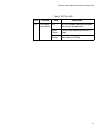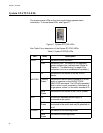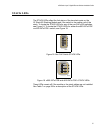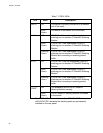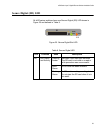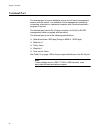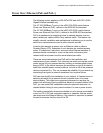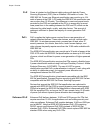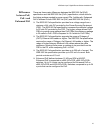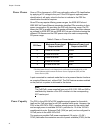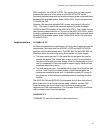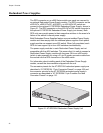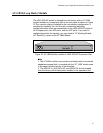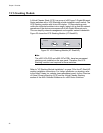x600 Series Layer 3 Gigabit Ethernet Switches Installation Guide
43
Differences
between PoE,
PoE+ and
Enhanced PoE
There are three major differences between the IEEE 802.3af (PoE)
specification and the IEEE 802.3at (PoE+) specification, which allow for
the higher wattage needed to power recent PDs. Additionally, Enhanced
PoE is different to both IEEE 802.3af (PoE) and IEEE 802.3at (PoE+):
The IEEE 802.3af specification provides for a voltage range from a
minimum of 44 volts DC provided by the Power Sourcing Equipment
(PSE). The IEEE 802.3at specification increases the minimum voltage
to 50 volts DC provided by the PSE. The higher voltage allows PoE+
PSEs to provide more wattage than PoE PSEs (the maximum wattage
is 30 watts for PoE+ PSEs compared to 15.4 watts for PoE PSEs).
The IEEE 802.3af specification supports the usage of Category 3
(CAT3) Ethernet LAN cables or higher. The IEEE 802.3at specification
requires the usage of Category 5e Ethernet LAN cables or higher. The
usage of higher category Ethernet LAN cables reduce the cable
resistance, allowing more power or wattage to be provided from the
PSE to the PD, when comparing PoE+ to PoE.
The IEEE 802.3af specification provides up to 350 mA of current. The
IEEE 802.3at specification provides up to 600 mA of current. Both
provide a minimum of 10 mA.
Enhanced PoE delivers between 15.4W and 20W at 48VDC.
Enhanced PoE is supported on x600-24Ts-POE, x600-24Ts-POE+
switches. Up to 18 x ports can be configured for Enhanced PoE on
x600-24Ts-POE and x600-24Ts-POE+ switches, compared to up to 24
x ports that can be configured for PoE.



